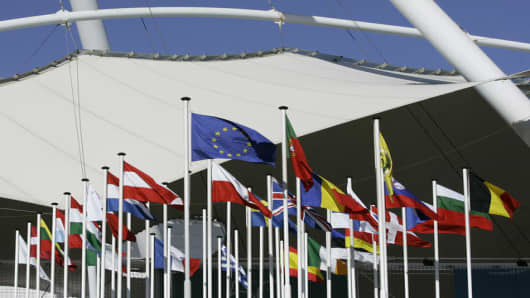Currency markets can alternatively make you look brilliant and thick within a breathtaking amount of time.
After hitting a low of 1.2145 on May 19th, the Euro rebounded to 1.2670 on May 21st only to fall today to 1.2180 today.
Clearly, the world of risk is on alert due to Europe and the concern over additional failing of European banks.
This shows up in LOIS spreads and sovereign CDS spreads increasing for Europe.
Ironically, the US-Chinese SED talks actually heighten the uncertainty over South Korea because of the talk’s media attention. (Track Currencies Here.)
At this stage, the US dollar continues to be the beneficiary of the global bad news.
While the world may want the markets to calm down, we may be nearing a stage where decisive action by the ECB and individual country finance ministries becomes necessary. Last week, Larry Kudlow suggested a blanket guarantee for deposits and money market accounts akin to what the US did in October of 2008 as a solution to generate calm. I would add all of the alphabet soup US Treasury programs along with the ECB cutting rates and pumping money into the European financial system.
While this may appear to be an overreaction to the crisis, I would say that the current haphazard approach is what is promoting and extending the crisis. As I wrote last week, “Act or Be Acted Upon” should be the mantra for leaders in Europe. While I see positive fiscal action developing from Germany, France, Spain, and Italy, the risk aversion theme continues to build momentum with new stories seen through this prism.
At the minimum, European leaders should be stating publicly that they can do much more to calm the markets and be readying a plan to do it. Until this occurs, we can expect a strong US dollar, weak global equity markets, and strong US Treasury markets.
________________________
Andrew B. BuschDirector, Global Currency and Public Policy Strategist at BMO Capital Markets, a recognized expert on the world financial markets and how these markets are impacted by political events, and a frequent CNBC contributor. You can comment on his piece and reach him hereand you can follow him on Twitter at http://twitter.com/abusch.



